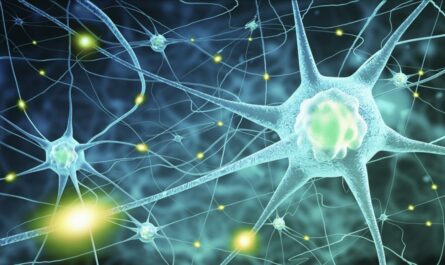Switching to alternative milk and eliminating seafood from one’s diet can lead to an iodine deficiency, potentially impacting long-term health, according to a recent study. Dr. John Harvey and a team of academics from Nottingham University Business School examined the shopping habits of over 10,000 Co-Op shoppers to determine the potential health consequences of replacing traditional milk with alternative options.
Using anonymized data, the researchers identified Co-op loyalty card users who regularly shopped at the store, enabling them to analyze their entire diet and identify those who had switched to dairy alternatives. Their findings have been published in the journal Scientific Reports.
The study involved calculating and analyzing the average weekly levels of iodine in grocery purchases to assess any reduction resulting from the transition to plant-based milk. The researchers also examined the impact of the dietary switch on other crucial nutritional components found in dairy milk, including calcium, vitamin B12, and saturated fat, some of which are fortified in plant-based alternatives. The primary sample for analysis consisted of 10,626 frequent customers who had purchased milk for at least four weeks before the transition and plant-based milk for at least four weeks after.
The researchers found that over 81% of the analyzed customers experienced a decrease in their average weekly iodine intake after switching to plant-based milk. Among them, approximately 14% experienced a decrease of less than 25%, while around 20% experienced a significant reduction of over 75%. An additional 45% experienced a decrease between 25% and 75%. Similar results were observed for calcium and vitamin B12.
On the other hand, more than 71% of consumers showed a positive reduction in their weekly intake of saturated fat, with about 23% reducing their intake by over 50%.
As Veganuary gains popularity and more people experiment with plant-based diets, the researchers behind the study emphasize the importance of monitoring iodine consumption during dietary transitions.
Dr. John Harvey cautions individuals considering replacing milk in their diet to pay attention to their iodine intake and ensure they are obtaining sufficient amounts from other sources. Many alternative milks are not fortified with iodine, so it is crucial to check the label. If preferred sources are not fortified, incorporating iodized salt into the diet is a potential solution.
Dr. Simon Welham, an assistant professor in nutritional science, expressed particular concern regarding iodine intakes among women of childbearing age. Inadequate iodine levels during pregnancy can result in permanent damage to the developing baby. He echoes Dr. Harvey’s advice to carefully review labels and ensure that iodine is present, particularly in plant-based milk alternatives.
*Note:
1. Source: Coherent Market Insights, Public sources, Desk research
2. We have leveraged AI tools to mine information and compile it



